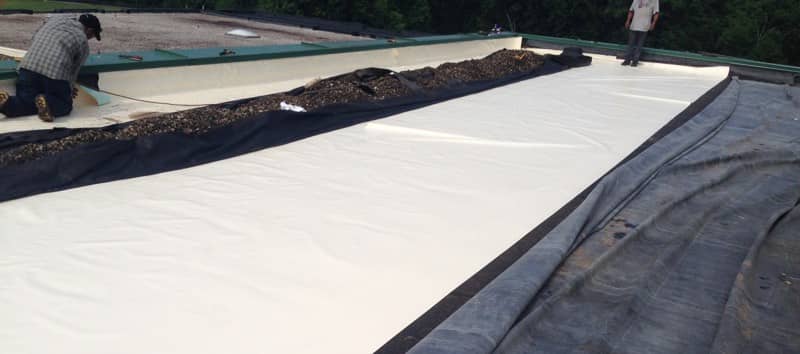 In order to maintain the integrity of you roofing system, periodic roofing inspections are a must. However, not all roofing inspections are equal. So what do you need to do to ensure that you are getting the most out of your inspection? The answer is simple - ask questions. During the inspection, ask the inspector a series of questions to make sure that he or she is covering all the bases and truly inspecting your roofing system.
In order to maintain the integrity of you roofing system, periodic roofing inspections are a must. However, not all roofing inspections are equal. So what do you need to do to ensure that you are getting the most out of your inspection? The answer is simple - ask questions. During the inspection, ask the inspector a series of questions to make sure that he or she is covering all the bases and truly inspecting your roofing system.
In order to provide you with a detailed list of questions to ask, we’ve broken up our 8 essential questions to ask during a roofing inspection into a 2-part series. Outlined below are the first 4 questions that you should ask your examiner during your roofing inspection.
1. Did the contractor probe their welding work?
Many variables can affect the welding of your roof, such as if the welding was performed at too cold of a temperature. Not having the proper welding can negatively impact the integrity of your roofing structure. Knowing if the contractor probed their welding will allow you to understand whether or not the pieces and parts of your roof will last for the expected length of time.
Asking if repairs were made after probing was completed is also an important question to ask. Your contractor should have made the appropriate repairs, but it isn’t guaranteed. Checking to see if repairs did occur will give you insight into whether or not your contractor is performing up to standards.
2. Is the roof installed as per the approved assembly?
Manufacturers have certain instructions specific to the assembly of their different roofing systems and structures. In order for the roof to perform to the best of its ability, the roof must be installed correctly. If not, the roofing structure can fail and result in damage to your facility.
3. Are the perimeters up to standards?
When dealing with the perimeters of your roof, there are a number of things that could harm the integrity of your roofing system. First and foremost, you’ll want to know whether or not the contractor installed the proper amount of perimeter sheets. Make sure the contractor followed the manufacturer’s specifications on installation of the perimeter sheets, such as if the fasteners are placed the appropriate width apart. Improperly installed wall detail can also harm the integrity of your roofing system. Ask your inspector whether or not the flashings are adhered or if there are voids or bridging at angle changes.
4. Are my field seams correct?
Your roof is only as good as the quality of the installation and the field seams holding it together. If your field seams aren’t correctly adhered, it can shorten the life expectancy of your roofing systems. Start by asking your inspector whether or not the width of the field seams are correct - if they aren’t, your roof is more prone to a quicker deterioration. General voids or start and stop points in the field seams are also signs that your roof was not installed correctly. Fish mouth welds are another sign that installation was not done properly.
There is also general wear and tear that can damage the field seams of your roofing system. Asking your inspector about scuffs, UV burns, and other signs of physical damage will allow you to make the appropriate repairs in order to maintain your roof. Exposure to dirt and moisture can also affect the integrity of your field seams.
After asking the inspector the above 4 questions, you will be well on your way to getting the most out of your roofing inspection. However, these questions are only half of what you need to uncover during your inspection. Stay tuned for our second blog in the series to get the last 4 questions you need to ask your roofing inspector to maintain the integrity of your roof.
-1.png?width=500&height=271&name=FiberTite_Only%20(500px%20wide)-1.png)


-1.png)